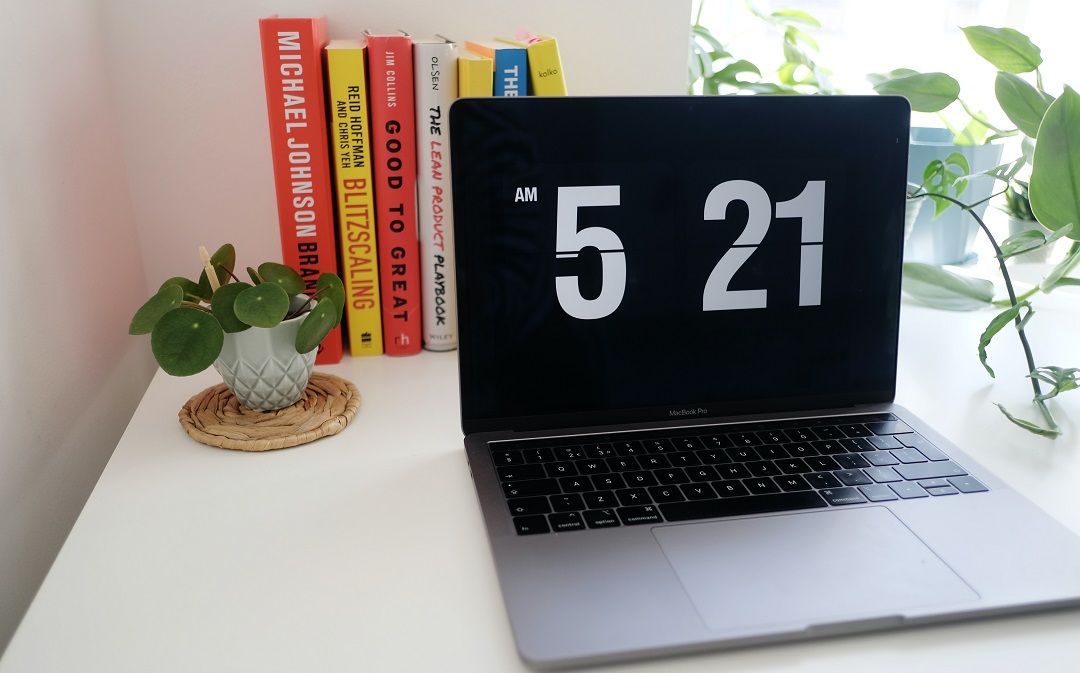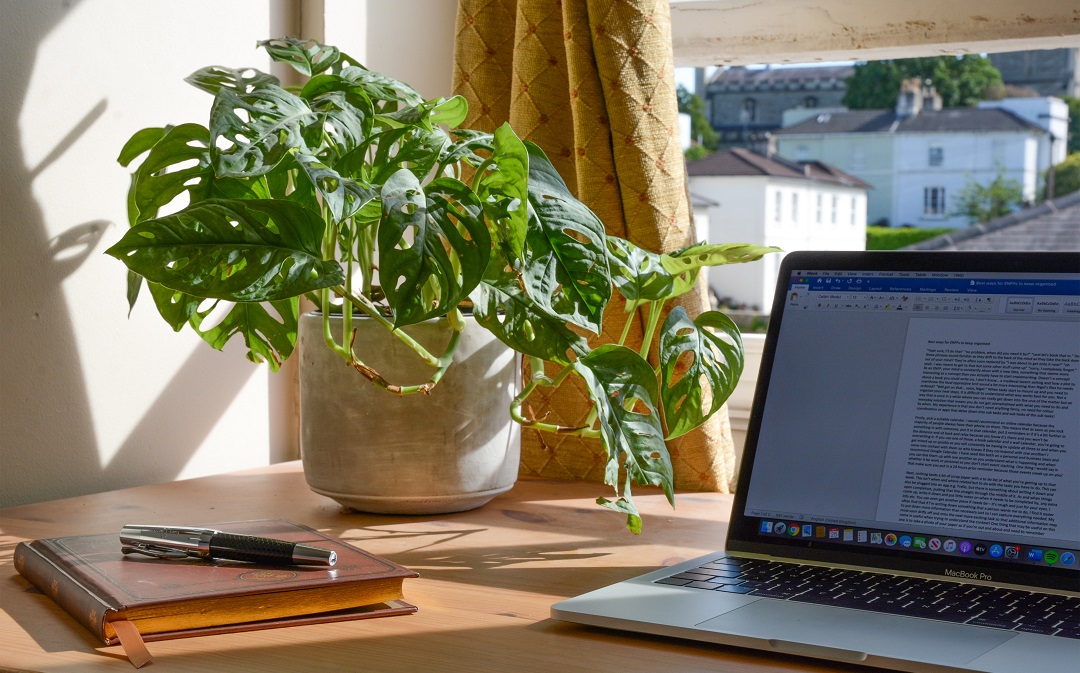If you’ve never had a structured daily routine, the concept might seem abstract or even unnecessary. You might wonder, “What’s the point?” or think, “That’s way too regimented for me.”
However, by the end of this article, you’ll not only understand the importance of a daily routine but also how to create one that truly resonates with who you are. The key lies in understanding and leveraging your unique strengths. By taking the HIGH5 strengths assessment, you can uncover your innate talents and use them to craft a routine that feels natural, energizing, and profoundly effective. This strengths-based approach transforms the idea of a daily routine from a rigid schedule into a powerful tool for personal growth and fulfillment.
Not only will it improve your productivity but it will also help you to enjoy life more, bring meaning to your work, and give you a sense of clarity. Let’s get started.
How a Daily Routine Changes Your Life
A daily routine can transform your life in numerous ways, especially when it’s aligned with your innate strengths. By taking the HIGH5 strengths test, you can uncover your unique talents and design a routine that leverages them. This personalized approach not only boosts productivity but also enhances your overall enjoyment of life.
When you incorporate activities that play to your strengths into your daily schedule, you’re more likely to stick to your goals and achieve them. Moreover, by consciously allocating time each day for pursuits that resonate with your core strengths, you’ll find yourself less stressed and significantly happier.
Lastly, a daily routine can give you a sense of clarity. By knowing what you are going to do each day, you will be less overwhelmed and stressed out.
You will know what is expected of you and will be able to focus on your work and goals more easily.
Many find that creating a daily routine is the best thing they have ever done for themselves. It may even change your career or help you to start your own business.

Let’s look at an example of how a daily routine can improve your productivity and give you clarity:
Example: Jessica’s Daily Routine
Jessica has always struggled with staying productive and focused on her work.
She constantly felt stressed and overwhelmed and did not know where to start when it comes to completing tasks at work or creating an online course.
However, after creating a daily routine, she finds herself much happier and more productive.
Every morning, before she starts working, Jessica meditates for 10 minutes to relax and prepare for the day ahead.
Next, she creates a list of things that she wants to accomplish each day and breaks the bigger tasks into smaller ones.
Throughout her workday, Jessica focuses on one task at a time and does not allow herself to be distracted by social media or email.
When it is time for lunch, she takes a break and eats; instead of working through her meal as she used to do.
In the afternoon, Jessica works on another task and then takes a short walk outside around 5 pm before getting back to work.
At 7 pm, after dinner, she spends an hour relaxing with her family and watching TV together.
Finally, when bedtime rolls around at 9 pm, Jessica turns off all electronics and goes to sleep early so that she can wake up feeling refreshed in the morning.
If that sounds like a solid day for you, then having a daily routine might be beneficial.
Pro Tip From HIGH5
Strength-Based Routine Design: After identifying your top strengths through the HIGH5 test, review your current daily routine. Look for opportunities to incorporate tasks that align with these strengths. For instance, if ‘Strategist’ is one of your top strengths, consider starting your day with a brief planning session to optimize your schedule.
Daily Routines for an Organized Life
Creating an organized life begins with establishing a routine that aligns with your natural strengths. By taking the HIGH5 strengths assessment, you can identify your unique talents and use them to craft a personalized organizational system. This strengths-based approach not only provides structure but also ensures that your routine feels natural and energizing. It allows you to allocate time effectively, preparing for tasks in a way that plays to your strengths, and accomplish your goals with greater ease and satisfaction.
Let’s look at some steps that you can take to create a daily routine that is perfect for you.
1. Make Your Bed
Your bed is the focal point of your bedroom. Making it in the morning will give you a sense of control and calm before you begin your day.
When making your bed, be sure to smooth out your sheets, fluff your pillows, and tuck everything in tightly.
If you’re feeling extra ambitious, try turning this into a workout by doing some simple yoga poses – like triangles – before getting started on more serious tasks for the day (like making breakfast or packing your lunch).
2. Have Your Equipment and Clothes Laid Out the Night Before
The first step to creating an organized morning routine is to make sure that everything is ready ahead of time. Layout all of your clothes so that they are clean and pressed.
If you are an early riser, then try setting out your outfit the night before. Also, make sure that all of your equipment (like laptops and cell phones) is charged and ready to go.

3. Wipe Down Large Surfaces
Make your bathroom or kitchen sink sparkle by wiping it down with a wet paper towel or cloth every morning.
By doing this, you’ll be able to see any spots that you missed when cleaning the night before.
Wiping down the bathroom counter (and even inside the toilet bowl) will help you feel relaxed throughout the day because there won’t be anything gross lingering in your peripheral vision.
This also helps improve communication – if everyone keeps their space clean, then they won’t have dirty dishes cluttering the table whenever they have guests over to eat.
4. Put Everything Back Where You Found It
Tidying up after yourself is one of the most important parts of a daily routine.
This will not only make you more organized, but it will also help your housemates feel calmer and more relaxed too.
Make sure that you put everything back where you found it – this includes dishes, clothes, books, shoes, etc.
If certain things are kept in the wrong place regularly, then either try to train everyone else in your household to use those items properly or use whatever equipment necessary to keep those items with their rightful owners at all times (such as rubber bands or labeled containers).

5. Run Through a List of Essential Items
Every morning before you leave for work/school/playtime, run through a mental list of the items that you will need.
This way, you won’t go out to the car and realize that your laptop is still on your desk.
When making a list like this, make sure to include everything from relevant work documents to an umbrella – just in case.
There’s nothing worse than being caught out in a rainstorm without protection because you were too busy rushing around looking for your keys that slipped into the black hole of space under your couch.
6. Prioritize Your Tasks
Every night before going to sleep, try writing down three tasks that you have time for during the next day so that when morning comes, all you’ll have to do is start with the most important thing on your list.
If you’ve already completed it, then try one of the other two tasks or cross off your list if it’s something that can be taken care of later.
7. Prioritize Your Emails
If you’re like most people, then you get more emails than you’d like to admit (and that number will only continue to grow for the rest of your life).
Unfortunately, there isn’t much that can be done about this problem other than to check email at set times throughout the day.
When checking emails, use the rules of triage: answer quick questions; save important messages for later; delete or archive irrelevant information (or forward it to someone else who might need it).

8. Keep Your Finances on Track
If possible, try using apps that monitor your expenditures and give you a report of your daily or monthly spending habits.
This can help you save up for important items and also lets you know where all of your money is going so that if there’s enough to spare, then maybe it can be put towards something larger (such as paying down debts or investing in the stock market).
9. Plan for Dinner
Even if everyone comes back from work/school/playtime at different times throughout the day, try cooking dinner together at a set time every night.
If possible, offer to cook for someone else one night out of the week – they will most likely return this favor in the future when their turn comes around again.
If neither of these options is viable possibilities, then make sure to have food that can be heated up quickly or eaten straight out of the refrigerator.
It might not be as tasty or as fresh, but it’s better than nothing – which is what you’ll have on those nights when everyone comes home from work/school/playtime at completely different times throughout the day.
10. Clear Your Desk at the End of the Day
If you happen to own a desk (which most people do), try cleaning it off right before going to sleep.
This will help you feel less guilty about neglecting your work and thus make you more willing to do some of it if need be.
Plus, if any important items are lying around that belong somewhere else, this will give them a chance to get back where they belong so that you can start fresh in the morning.
11. Review Your To-Do List
As strange as it might sound, the best time to review your to-do list is right before going to sleep.
That way, while you dream of a better world brought about by productivity and organization, your subconscious can help make some of those dreams a reality – which means more time spent working and less time wasted on distractions (such as video games or Reddit).
Because remember: there’s no such thing as doing nothing when trying to improve one’s lifestyle.
Pro Tip From HIGH5
Strength-Aligned Task Prioritization: Use your HIGH5 strengths profile to prioritize your daily tasks. If ‘Deliverer’ is one of your top strengths, you might benefit from a detailed to-do list with clear milestones. Conversely, if ‘Chameleon’ is a key strength, you might prefer a more flexible schedule with room for spontaneity.
Daily Routines for a Healthy Life
A healthy life starts with a healthy body. A healthy body starts with a clean kitchen, which is where most of America’s health problems begin.
Staying on track throughout the day will help keep you motivated to complete more tasks without taking too many breaks along the way; which means better sleep at night and less time wasted trying to fall asleep.
And if all of these things are done daily, then you’ll be feeling great before you know it.
These are the steps to follow for a daily routine that forms a healthy body.

1. Start the Day With a Glass of Lemon Water
Water is good for you. Not only will it keep your body replenished with vital nutrients, but it will also help rid the body of harmful toxins that are causing you to feel sluggish and tired all day long.
Depending on what type of water is being consumed, however, there are certain benefits that one can reap from drinking this life-giving liquid throughout the day (other than staying hydrated).
For instance, lemon water helps stimulate fat loss by flushing out unwanted chemicals found in the liver which allows it to function at optimal levels.
Fresh squeezed juice might do just as well – or even better since lemons are packed with Vitamin C which is necessary for healthy immune system functioning among other things.
Either way, water is a great asset to have in one’s daily routine.
2. Exercise in the Morning
Once upon a time, people had to be at their best physically all day long just so they could survive throughout the harsh times of early civilization.
Nowadays, however, with grocery stores and pharmacies on practically every corner, this has become less and less necessary; which means that most people spend very little time – if any at all – working out or trying to stay fit (which can cause health problems later down the line).
Studies show that exercising right after waking up is optimal for getting rid of stress and staying energized throughout the rest of the day; therefore it should be done before anything else – even though we’ve been conditioned to believe that it’s the most inconvenient time to get things done.
3. Eat a Good Breakfast
The first meal of the day is important for staying healthy. It should be full of nutrients, low in calories and high in volume.
Breakfast foods can include whole-grain cereals, oatmeal, eggs with toast or fruit, yogurt plus fruit or granola, and bagels plus cream cheese plus fruit…
Pretty much anything that’s considered good for the heart like turkey bacon instead of pork bacon (which has three times as much fat) – all depending on how willing you are to give up bad habits in favor of better health.
4. Stay Hydrated
Almost 50% of people are chronically dehydrated, which is very bad for the body.
This is especially true if you exercise regularly because you need to stay hydrated more often – even compared to people who don’t sweat that much.
To prevent this from happening, always have a glass of water on hand.
This will not only keep you alive longer, but it will also prevent productivity crashes throughout the day (which makes getting things done harder).
When exercising in the morning after waking up, be sure to drink lots of water before and after completing your workout.

5. Get a Healthy Lunch
Lunchtime is probably the most important time for people to eat since they’ve been working hard all morning and need something nutritious to replenish their energy with.
Unfortunately, it’s also one of the times when people tend to eat whatever they can get their hands on – with fast food is the biggest culprit.
One thing that every workplace should have access to is free healthy snacks like fruits and vegetables (or whatever you want).
If not, getting some type of salad or a big container filled with tuna pasta or anything else is usually better than nothing at all.
6. Do Some Mid-Afternoon Stretches
No one likes doing this – just like waking up early in the morning – but it’s necessary for preventing muscle strains from long periods of sitting.
In most workplaces, this is made especially easy by providing a few chairs with wheels on them which people can move around as they please.
If you work outdoors, try going for a short walk every so often since this will give muscles some time to relax without you having to do anything else since movement is good for the heart and circulation.
7. Eat Dinner peacefully
Dinner is the last meal of the day before sleep, although for some people this can be eaten at around 9 PM or 10 PM.
Since dinner should not only be a time to recharge after a day’s work but also a time where you socialize with family and friends, it shouldn’t take more than an hour or two to complete.
For those who like to take time over their meals, it might be good to split up dinner into different courses which can be eaten slowly.
8. Take Time to Relax
After a long day of work, taking time to relax can be very important.
This is especially true for people who have families since they need to remember that being a parent doesn’t mean you have to take care of everyone else’s problems all the time.
This means letting go and trying something completely different from what you do during your normal daily routine.
For some people, this might simply mean going to the bathroom and taking a nice shower every night before going to bed.
Or maybe watching television or listening to music while having a cup of tea or coffee in hand – turning off phones and tablets in order not to be distracted by work emails or other alerts which may pop up during the relaxation process.
In most cases, this is the most difficult part of improving your daily routine – especially when it comes to letting go.

9. Go to Sleep at a Reasonable Hour
For many people, going to sleep late at night can mean having very little time in the morning before rushing off to work.
This can be problematic since there are plenty of things that need doing before leaving home (making lunches for school or work, checking if doors are locked, taking out the garbage, or recycling) which might take up too much time in the morning.
Also, sleeping late means having less time for yourself before starting the day.
Daily Routine for More Productive Work
If you want to be able to have more productive work, then your daily routine is also key.
Here are the steps to follow if you want to be more productive in the work you do.
1. Plan the Night Before
If you want to get more productive work done during the day, one of the best ways is by planning at night before going to bed.
This might be difficult in most cases (especially when there’s a lot of work and people don’t like their jobs).
But it can make things easier in general since there’s nothing else you need to think about in the morning when getting ready for work or school since everything has already been thought out and planned.
This means having a list somewhere (sticking post-it notes on the wall is one popular way) with all of today’s tasks written down so that they can be worked on without any problems or distractions that may take your attention away from what needs doing.

2. Wake Up At The Same Time Every Day
The first few hours of the day (after waking up and having breakfast) can be very important since this is when we can get the most work done.
That’s why it’s important to wake up at around the same time every day, even on weekends or days off from school or work.
This means we’ll be getting up in time for the day and won’t need to rush over anything.
3. Create a Distraction-Free Workspace
If you’re able to create a distraction-free workspace then it might be possible to get more work done.
This means no phones chirping or notifications coming in, no television set or music that can take your attention away from what needs doing, and no one trying to distract you with unimportant conversations.
This can be problematic during weekends when family members want to chat but if possible, try not to let this interfere with your daily routine since it can result in having less productive days which could lead to problems at school or work.
In most cases though, this is easier said than done since most people have jobs that require being on a phone or going to meet with clients at times.
In this case, it’s best to try and stick as much as possible to your daily routine so that you don’t become distracted by other things that might take your attention away from the tasks at hand.

4. Tackle the Worst Thing First
Tackling the worst thing first is another way of making sure we’re able to get more productive work done during the day.
This means tackling those difficult things (especially those we tend to put off for as long as possible) right when we wake up and getting them out of the way before anything else comes along which might seem even worse in comparison.
For example, if you have problems in your marriage, don’t wait until the end of the day when everything is miserable already to try and think about solutions.
Instead, get up early (even on weekends) before everyone else wakes up and goes over what happened the previous day so that by the time family members are awake, these issues will already be resolved or at least thought out enough for them not to interfere with daily life at home.
This also works very well during school and work since it’s best to handle those difficult tasks right away instead of trying to deal with other things first which might seem even worse.
Doing this should mean you’ll still have plenty of time left after dealing with other things – time you can use for yourself or do something else productive.
5. Rest or Meditate
At the end of most days, it might be a good idea to take some time to relax and meditate.
This helps us get rid of any stress we might have before going to bed so that when we wake up in the morning, everything will seem easier and more relaxed.
This means not thinking about work or school during the day and having plenty of time for fun or things that can help us unwind after a long period of focusing on other things.
6. Say No to Unreasonable Requests
Saying no to unreasonable requests is one way we can spend more time working on important tasks instead of doing other things that don’t require our attention.
This means no longer allowing other people to distract us with unimportant chores or errands since this will kill our productivity and make it difficult for us to get anything done during the day.
For example, if we constantly spend our days running errands for other people this will make it impossible to do anything productive because we won’t be able to fit anything in between all of that running around.
In most cases though, this is just common sense and should come naturally without us needing to actively think about it.
The problem with this nowadays is that many times we get distracted by other people either through lack of motivation or wanting to help them out.
That makes it hard to stick to a daily routine and get things done since we keep getting drawn away from what needs doing.
Daily Routine for a Stronger Relationship
Developing a daily routine that nurtures your relationships is crucial, and it becomes even more powerful when it’s informed by your unique strengths. The HIGH5 strengths assessment can provide valuable insights into how you naturally connect with others. By understanding your relational strengths, you can create intentional moments in your daily routine that foster deeper connections. This strengths-based approach ensures that the time you spend with loved ones is not just present, but truly impactful and fulfilling for all involved.
Being able to do this will not only help improve feelings within the household but it will also allow more time for both parties involved so that by the end of the week both people are feeling better and closer than before.

Kiss Your Partner Goodbye
Part of a daily routine means getting up early, speaking with our partners, and then kissing our partners goodbye when it’s time to go.
Although this might seem like a simple task, it’s very important since by doing this we show the other person how much they mean to us.
It also shows them that we care about them which in turn creates a better relationship with them as well as more time spent together throughout the week.
Create Little Daily Rituals
Creating little daily rituals will help us get into the habit of interacting with those around us from day one instead of waiting until later on when everything begins to get too hectic to bother with.
This is usually something that takes place during breakfast where we can talk about what happened the day before or what’s coming up later on that week.
It doesn’t have to be anything especially meaningful but it does need to take place so that everyone is involved.
Schedule a Date Night
It might seem like having a daily routine means no room for social activities, but this isn’t the case at all.
We’re not suggesting cutting out time for friends and family members but instead creating little slots throughout each week where we dedicate some time specifically to them instead of trying to fit things in between other tasks or errands which need doing.
Create a Bonding Bedtime Routine
The last thing that’s usually sacrificed if we don’t make time for our daily routines is our sleep schedule.
A bedtime routine can improve your relationships by creating a sleep schedule that is healthy and also enjoyable.
This means sticking to the same time every night so that both people get used to it and can plan what they need to do beforehand.
It also means creating a routine that helps you enjoy your time together instead of rushing through things so that everyone can go straight to bed, which is similar to how most couples operate these days.
Pro Tip From HIGH5
Strength-Based Connection Time: Use your HIGH5 strengths profile to enhance your relationship routines. If ‘Empathizer’ is one of your top strengths, you might schedule a daily check-in with your partner to discuss emotions and experiences. If ‘Storyteller’ is a key strength, consider implementing a family storytelling time where you share experiences or read together.
Best Daily Routine for Students
As a student, your daily routine can vary immensely depending on your level of study.
If you’re studying for a professional qualification then the tasks will go one way, but if you’re at university or school then you must mix up your activities to help with both studying and socializing.
This might seem like an impossible task, but it’s pretty easy since all we need to do is keep reminding ourselves what our priorities are when it comes to these activities.
These are the five things that all students should do as part of their daily routine.
Get up early
This is the most important rule of all. Getting up early is the only way to make sure your day goes smoothly, and this will give you plenty of time to complete all your tasks.
As a student, you might also find that staying up late isn’t really an issue since you’ve probably got plenty of time on your hands, but it’s still important to make sure you get enough sleep each night.
This means getting to bed early and setting your alarm for the right time.
Getting up early is best if done gradually, so begin by setting your alarm for half an hour earlier than usual and then moving it forward every few days until you’ve reached the time that works best for you.
The process can take some time but eventually staying up won’t be a problem because of how much more efficient you’ll be when working toward your goals in the morning.
Eat breakfast
It’s important to make sure that you sit down and eat something nutritious early in the morning.
Breakfast is essential for putting off hunger pangs later on in the day; plus it will help keep your energy levels up right through until lunchtime.
So prepare yourself a healthy meal each morning before heading out of the door.

Get everything ready the night before
It might seem like more effort to get all your things ready for school/college ahead of time, but it takes much less time than trying to do everything at the last minute.
If you leave things too late then there’s always a risk that something will go wrong and ruin your whole day, which is why it’s better to be as organized as possible.
This means preparing any clothes you might need for the next day as well as making sure that everything else is ready before going to bed.
This way you won’t have to worry about forgetting anything important when you wake up since it will already be right beside you on your desk.
Get plenty of exercises
This part can vary according to where and what type of college/university course you’re following, but the most important thing here is that you find time each day to work out.
Exercise releases endorphins into the body which improves our mood and also ensures we stay healthy so there are no excuses not to do it every day.
The best way to work out is by joining a club or group that meets up regularly, but if this isn’t possible then look for other activities that you enjoy and figure out how you can incorporate them into your daily routine.
If you do the same thing every day then it will soon become easy and will have the positive effect that exercise should be providing you with.
Donate or recycle your stuff
It’s likely that as a student you’ll have plenty of things lying around at home which are surplus to requirements, so finding ways to give them away is great for both your home life and also making sure the environment stays clean.
Rather than throwing these things away, donate/recycle them since there are plenty of charities/organizations that can make use of your stuff.
This could be clothes, shoes and even books so take a look around and you should find something in good condition.
Best Daily Routine for Kids
Here are the best routines that kids should be doing daily.

Basic Cleaning Routine for Kids
Having a cleaning routine will help your kids take responsibility and it will also help them learn how to clean up after themselves.
Here is a list of cleaning tasks that you can get your child to do:
- Take out the trash
- Sweep the floors
- Clean their room, make their bed & put clothes away
- Set & wipe the table for dinner etc.
You should also teach children how to use basic supplies like paper towels and sponges (if they’re old enough).
You don’t need fancy equipment or expensive tools, just give them what they need and show them how it’s done.
Scheduled Meal Time for Kids
Having a scheduled mealtime is important, it will help keep you and your children on track with the day and know when it’s time to eat.
When you schedule a certain amount of time for meals (including snacks) this will eliminate arguments between parents and kids about when they’re allowed to eat their next meal.
It also helps us as parents know how long we have in-between meals if we want to go somewhere after dinner etc.
Make Chores Fun For Kids
You could use music as an incentive for your children to getting their chores done and having fun while doing it.
Kids love music and dancing so you might want to put some headphones on your children, and set a time limit for how long the volume of the music will stay on (turn it off after that amount of time).
Give Rewards for Completing Tasks & Staying Organized
Create simple reward systems for when your kids complete tasks. You could also use it as a motivation system so that they want to stay organized so that they can watch TV or play games on their computer.
If you follow this daily routine then it’ll keep your kids busy while teaching them key skills for life.
Get Your Child To Take Responsibility
When your kids are young – teach them responsibility by having them help with little tasks.
When they get older, make them responsible for larger things like cleaning the house (or room).
Give your children choices if you want it to be their responsibility to tell them exactly what you want to be done or give them some freedom and let them decide on how they’re going to do the task.

How to Stick to Your Routine
Back to you, there are a few things you can do to stick to your daily routine:
- Make a list of the tasks you need to accomplish each day and try to stick to that list as closely as possible
- Set realistic goals for yourself, and don’t try to do too much at once
- Make sure that your daily routine is convenient and easy to follow
- Try to get into a routine as quickly as possible when you wake up, so it becomes second nature to you
- Reward yourself for completing tasks on your list, even if they’re small rewards
- Following a daily routine can be extremely helpful in improving your productivity and getting things done
How to Improve Daily Routine
One way to improve your daily routine is by setting goals for yourself each day.
This could involve tasks such as completing a certain number of tasks, writing a certain number of words, or working for a certain number of hours.
Having tangible goals to work towards can help to increase productivity and motivation.
Another way to improve your daily routine is to establish a daily routine that works for you.
This could involve waking up at the same time each day, eating breakfast at the same time each day, and taking breaks at the same time each day.
Having a set routine can help to streamline your day and make it more efficient.

Bonus: How To Write a Daily Routine
Write down all of the tasks that you would like to accomplish during the day.
Prioritize your list by putting the most important task at the top, and write down an estimate of how long each task should take to complete.
Group any related tasks so that they can be completed in succession (e.g., working on multiple chapters of a book).
Finally, determine when you should start and end each task based on your other daily activities, after which you can assign these tasks to individual hours or half-hours during this period.
Once you’ve created your routine, stick with it every day.
Frequently Asked Questions About Daily Routine
What things should I do every day?
1. Exercise: Studies show that exercising every day can significantly improve mental health and productivity. For optimal results, exercise 5-6 days per week (for 30 minutes each session).
2. Read: Reading daily will help you become well-versed in areas of your choice, allowing you to think intelligently about any given topic – something everyone should aspire to be able to do.
3. Gratitude Journal: A vital exercise for improving happiness levels and increasing empathy, gratitude journaling involves writing down or thinking about things you’re grateful for every single day – the more specific the better.
What should I do every day at home?
When you are at home, make sure to do the following things every day:
- Prepare the next day’s outfit(s) and lay it/them out on your bed or somewhere you will see them
- Make sure to pack any work, school, or gym bags for easy access in the morning
- Unload and reload the dishwasher
- Take out the trash and recycle (if applicable)
What to do after waking up?
After you’re up there are a few tasks that are recommended to do every day before anything else.
Drink Water: Drinking water first thing in the morning is an excellent way to start your metabolism for the day and hydrate yourself after not drinking any liquids while you were asleep.
Make the Bed: Making the bed each morning is an effective way to build self-discipline and foster a small sense of accomplishment for completing such a simple task – two things that will help you with whatever else comes your way later in the day.
Shower: This one may seem like a no-brainer, but many people miss it altogether. Taking a shower first thing in the morning will wake you up and get your blood flowing for the day.






